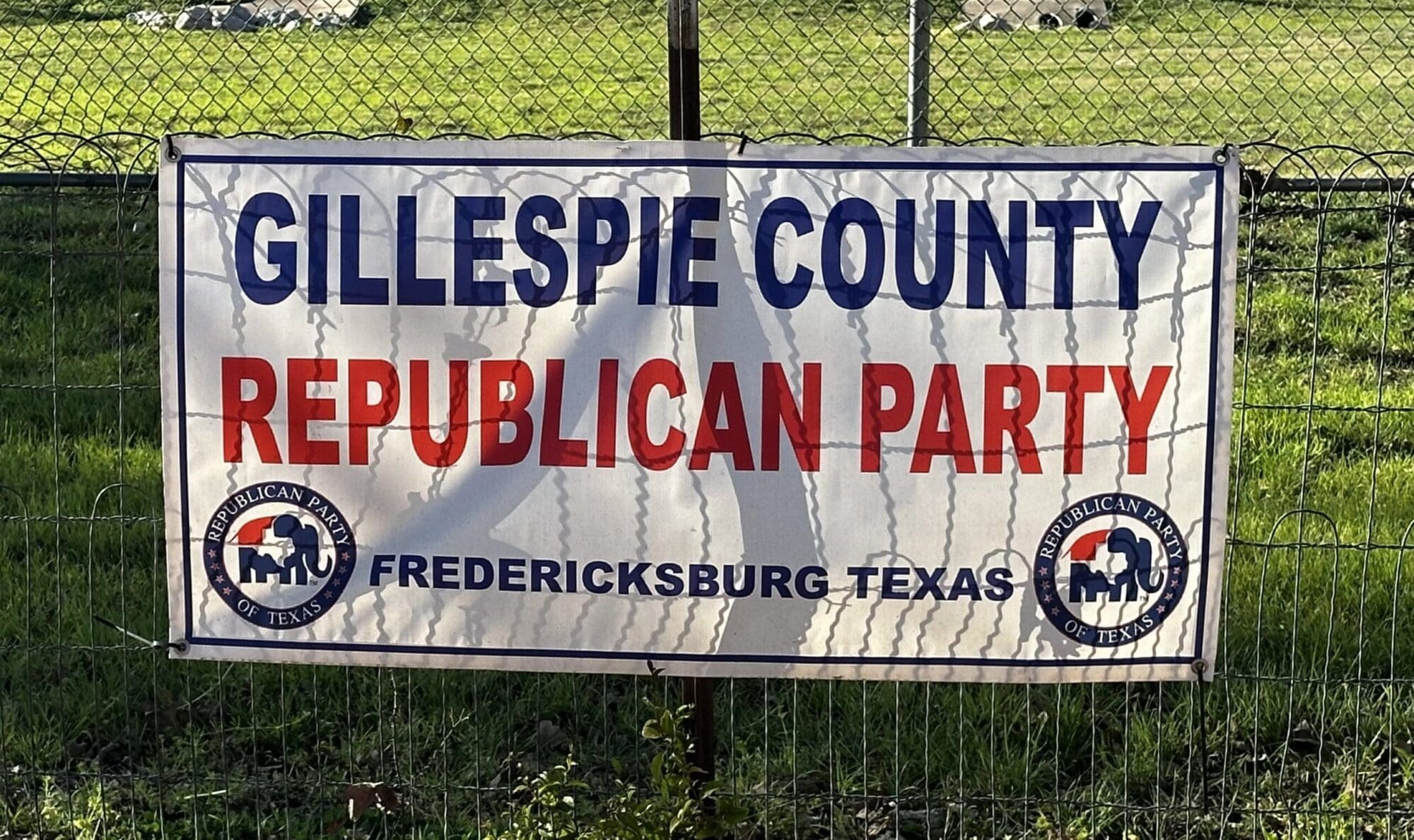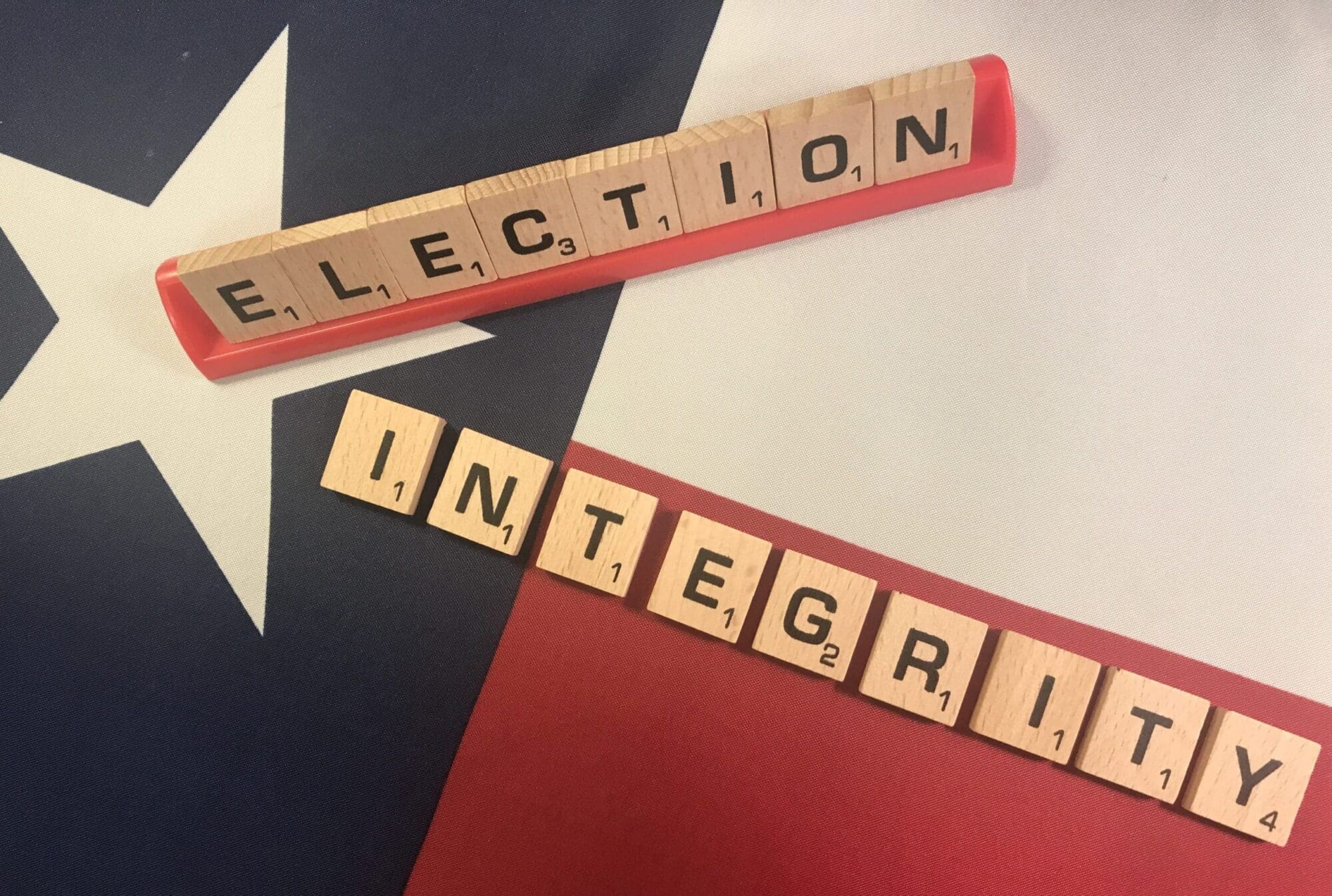Three measures to make elections more secure were approved in the Texas House on Tuesday, the deadline for the chamber to approve Senate legislation, as several other election integrity proposals are in imminent danger of dying.
Senate Bill 1070: Interstate Voter Registration Crosscheck
After a couple of false starts, the House passed Senate Bill 1070 by State Sen. Bryan Hughes (R–Mineola), which effectively requires Texas to withdraw from the costly ERIC interstate voter registration crosscheck program.
In March, the Texas secretary of state’s office announced that Texas is developing its own interstate crosscheck program.
“Our intention is to remain with an interstate voter registration crosscheck program,” said the bill’s House sponsor, State Rep. Jacey Jetton (R–Richmond). “It is important to election integrity.”
Most Democrats voted against the measure that will result in Texas withdrawing from ERIC, which has been criticized for being used for partisan purposes. Yet in 2015, many of the same Democrats voted against the original legislation directing the state to participate in an interstate crosscheck program.
A Republican amendment named SB 1070 the Alan Vera Memorial Act, in honor of the longtime election integrity advocate who passed away at the Capitol on May 4.
A Democrat amendment made several other changes, so the bill has to go back to the Senate, which must concur with the amendments or work out a compromise version in a conference committee with House members.
Senate Bill 1933: Administrative Oversight by Secretary of State
Senate Bill 1933 by State Sen. Paul Bettencourt (R–Houston) gives the Texas secretary of state administrative oversight of county elections offices where recurring problems are identified, and it authorizes the state to conduct election audits in addition to those already required by law.
The House adopted several amendments, including one citing the bill as the Alan Vera Election Accountability Act, so SB 1933 must go back to the Senate for lawmakers to resolve the differences.
Senate Bill 1750: Abolishing Elections Administrators
Senate Bill 1750 by Bettencourt abolishes the position of county elections administrator in a county with a population of more than 3.5 million and transfers the duties of that office back to the elected county clerk and county tax assessor-collector.
As bracketed, the bill currently impacts only Harris County, which is home to 15 percent of the state’s registered voters and most of Bettencourt’s district.
Harris County commissioners changed to an appointed elections administrator in 2020. A string of botched elections followed.
Another election security priority that passed this week, Senate Bill 1599 by Hughes, was sent to the governor on Tuesday. SB 1599 clarifies procedures for accepting and processing mail-in ballots, including the requirement that voters’ signatures must be verified.
Election Security Bills in Imminent Danger
The Senate has until Wednesday to consider legislation to restore felony penalties for illegal voting offenses, a priority of the Texas GOP and Lt. Gov. Dan Patrick.
House Bill 1243 by State Rep. Cole Hefner (R–Mount Pleasant) became eligible for a Senate vote on Tuesday. On Sunday, a Senate committee substituted HB 1243 with language from a similar bill, Senate Bill 2 by Hughes, which includes a provision clarifying that ignorance of the law is not a defense for illegal voting.
The House’s last chance to first consider Senate bills is Tuesday. Several of the Senate’s election security bills are on the May 23 calendar but are unlikely receive a vote before the deadline:
- Senate Bill 1039 by Bettencourt, creating a civil procedure for local election officials to respond to complaints about election irregularities;
- Senate Bill 1807 by State Sen. Drew Springer (R–Muenster), creating a civil penalty for officials who illegally alter election rules;
- Senate Bill 1846 by State Sen. Brandon Creighton (R–Conroe), regulating voting system software;
- Senate Bill 1910 by Bettencourt, allowing public access to election records; and
- Senate Bill 2208 by State Sen. Tan Parker (R–Flower Mound), allowing election crimes to be prosecuted in adjoining counties or judicial districts.
The Republican-controlled Legislature failed to pass a long list of GOP-priority election bills.
The regular legislative session ends May 29.





